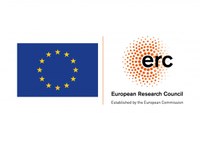GloQur- The Global Qur'an
GloQur looks at Qur’an translations as a central medium through which Muslims across the globe today approach their faith. We study the historical, exegetical, socio-political and linguistic dimensions of this genre throughout the modern period, which has been characterized by globalizing forces as well as the rise of print and new media. GloQur thus bridges the gap between philological, historical and anthropological approaches to modern and contemporary Muslim engagement with the Qur’an.

Since the early 20th century, individuals and institutions have produced Qur’an translations into nearly all languages read by Muslims across nation-state borders. We examine the conditions in which translations were and still are commissioned and produced, the literary history and ideological backdrop of translations, the translators’ decisions as they become manifest in the texts and the use of these texts by local audiences. By studying the role of Qur’an translations in specific Muslim communities, as well as their use in social media, we shed light on the linguistic, cultural and religious significance that is attributed to them and on the processes through which specific translations are elevated to a position of authority.
Our team members conduct research on the translation activities of government-funded agencies such as Saudi Arabias King Fahd Complex for the Printing of the Holy Qur’an and similar institutions in Iran, Turkey, Malaysia, Indonesia and other countries. They also look at the impact of transnational missionary movements, such as the Ahmadiyya movements, and the Qur’an translation they produce and distribute. Furthermore, we are interested int he complex centre-periphery structures created by the spread of imperial European languages such as English, French and Russian. These languages have long-standing traditions of Biblical translation as well as Orientalist Qur’an translation. At the same time, they have become the languages of large Muslim populations and, therefore, languages of Islam. The study of Qur’an translations will help us map this process and thereby to transcend simple dichotomies between Arabic and ‘vernacular’ or ‘Western’ and ‘non-Western’ languages.
A comparative analysis across languages and regions will allow us to describe how a shared exegetical heritage is negotiated and reconstructed in various linguistic, social and ideological settings.


